
Pittsburgh: The Steel City's Modern Renaissance
Pittsburgh, located in Pennsylvania, has transformed from a steel industry giant to a bustling hub of culture, technology, and outdoor activities. This city, nestled at the confluence of three rivers, offers stunning views, historic landmarks, and a thriving arts scene. Whether you're a history buff, an outdoor enthusiast, or a foodie, Pittsburgh has something to captivate your interests. Start your journey with a visit to the iconic Point State Park, where you can enjoy the scenic view of the rivers and the famous fountain. The park is a perfect spot to relax or take a boat tour to explore the city's waterways. For a dose of history, the nearby Fort Pitt Museum offers insights into the area's significance during the French and Indian War. Art lovers will appreciate the Andy Warhol Museum, dedicated to the Pittsburgh-born pop art legend. The museum houses an extensive collection of his works and offers a deep dive into his life and creative process. Another must-visit is the Carnegie Museum of Art, which features an impressive array of contemporary and classic art. Sports enthusiasts can catch a game at the Heinz Field or PNC Park, home to the Pittsburgh Steelers and Pittsburgh Pirates, respectively. The city's passion for sports is palpable, and attending a game is an experience in itself. For those who prefer outdoor activities, the nearby Appalachian Mountains provide excellent hiking and biking trails. Don't miss the opportunity to explore Pittsburgh's vibrant neighborhoods, each with its unique charm. From the historic strip district with its bustling markets and eateries to the trendy Lawrenceville area known for its boutique shops and cafes, there's a neighborhood to suit every taste. And when it comes to dining, Pittsburgh's culinary scene is thriving, offering everything from fine dining to delicious street food. Pittsburgh's transformation is a testament to its resilience and innovation. With its rich history, cultural diversity, and endless attractions, Pittsburgh is a destination that promises a memorable and enriching experience.
Local tips in Pittsburgh
- Take the Duquesne Incline for panoramic views of the city skyline and rivers.
- Visit during the fall to experience the beautiful autumn foliage in the surrounding areas.
- Use the city's extensive bike-sharing program to explore the many bike trails along the rivers.
- Check out the local breweries and enjoy a taste of Pittsburgh's craft beer scene.
- Explore the Strip District on a Saturday morning when the markets are bustling with activity.
Neighbourhoods in Pittsburgh
Pittsburgh: The Steel City's Modern Renaissance
Pittsburgh, located in Pennsylvania, has transformed from a steel industry giant to a bustling hub of culture, technology, and outdoor activities. This city, nestled at the confluence of three rivers, offers stunning views, historic landmarks, and a thriving arts scene. Whether you're a history buff, an outdoor enthusiast, or a foodie, Pittsburgh has something to captivate your interests. Start your journey with a visit to the iconic Point State Park, where you can enjoy the scenic view of the rivers and the famous fountain. The park is a perfect spot to relax or take a boat tour to explore the city's waterways. For a dose of history, the nearby Fort Pitt Museum offers insights into the area's significance during the French and Indian War. Art lovers will appreciate the Andy Warhol Museum, dedicated to the Pittsburgh-born pop art legend. The museum houses an extensive collection of his works and offers a deep dive into his life and creative process. Another must-visit is the Carnegie Museum of Art, which features an impressive array of contemporary and classic art. Sports enthusiasts can catch a game at the Heinz Field or PNC Park, home to the Pittsburgh Steelers and Pittsburgh Pirates, respectively. The city's passion for sports is palpable, and attending a game is an experience in itself. For those who prefer outdoor activities, the nearby Appalachian Mountains provide excellent hiking and biking trails. Don't miss the opportunity to explore Pittsburgh's vibrant neighborhoods, each with its unique charm. From the historic strip district with its bustling markets and eateries to the trendy Lawrenceville area known for its boutique shops and cafes, there's a neighborhood to suit every taste. And when it comes to dining, Pittsburgh's culinary scene is thriving, offering everything from fine dining to delicious street food. Pittsburgh's transformation is a testament to its resilience and innovation. With its rich history, cultural diversity, and endless attractions, Pittsburgh is a destination that promises a memorable and enriching experience.
When is the best time to go to Pittsburgh?
Iconic landmarks you can’t miss
Point State Park
Explore the natural beauty and historical significance of Point State Park in Pittsburgh, a perfect getaway for tourists seeking relaxation and recreation.
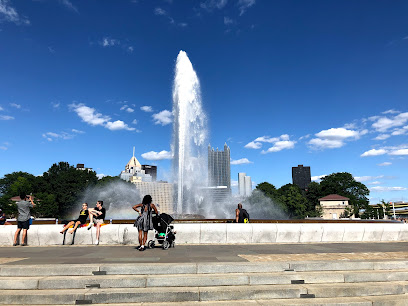
Schenley Park
Explore Schenley Park: A verdant urban retreat in Pittsburgh, perfect for nature lovers, outdoor adventures, and vibrant community events.
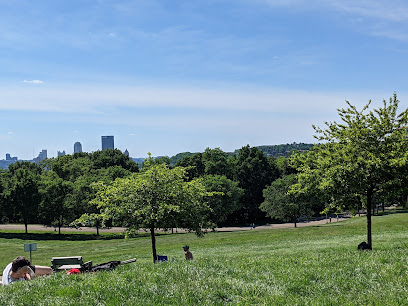
Market Square
Experience the vibrant heart of Pittsburgh at Market Square, a historical landmark filled with shops, restaurants, and lively events.
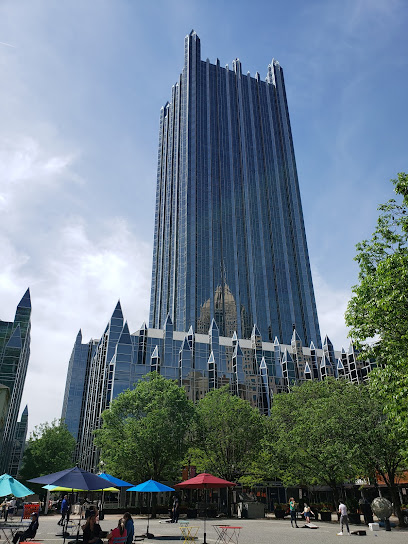
National Aviary
Explore the National Aviary in Pittsburgh, a premier destination for bird lovers, featuring diverse species, immersive habitats, and engaging conservation programs.
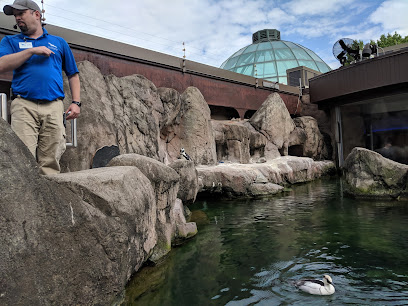
The Andy Warhol Museum
Experience the vibrant world of pop art at The Andy Warhol Museum, the largest museum dedicated to a single artist in the United States.
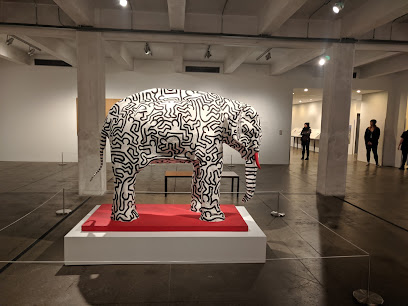
Randyland
Discover the whimsical world of Randyland in Pittsburgh, an immersive art installation that captivates with its vibrant colors and unique sculptures.
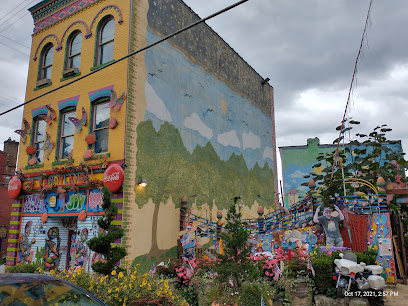
Senator John Heinz History Center
Explore Pittsburgh's history through engaging exhibits and unique artifacts at the Senator John Heinz History Center, the largest history museum in Pennsylvania.
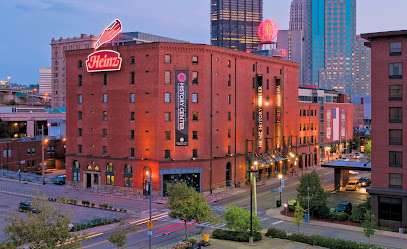
Point State Park Fountain
Discover the enchanting Point State Park Fountain, a breathtaking urban landmark in Pittsburgh, surrounded by stunning rivers and rich history.
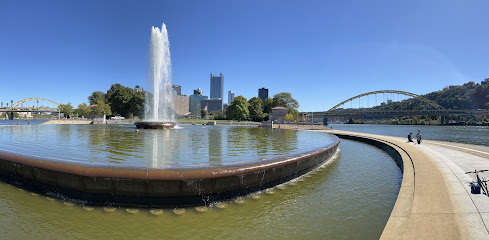
The Frick Pittsburgh
Experience the charm of The Frick Pittsburgh: a historic art museum featuring exquisite collections and serene gardens in the heart of Pennsylvania.
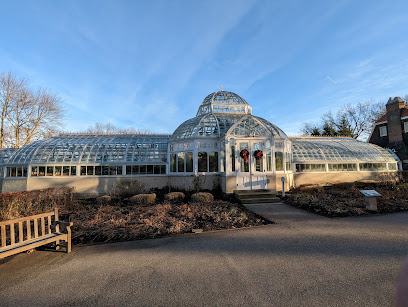
Point of View
Experience stunning views of Pittsburgh’s skyline and rich history at Point of View, the ultimate scenic overlook for tourists and nature lovers.
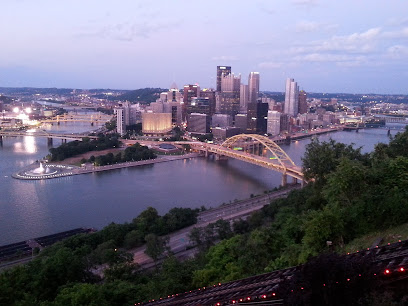
Fort Pitt Museum
Explore the Fort Pitt Museum in Pittsburgh, where history comes alive through engaging exhibits and the rich legacy of America's early frontier.
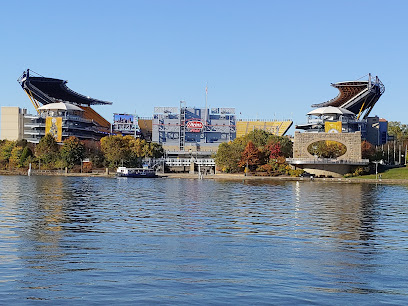
Soldiers & Sailors Memorial Hall & Museum
Delve into the rich military history at Soldiers & Sailors Memorial Hall & Museum in Pittsburgh, where valor and sacrifice are honored through inspiring exhibitions.
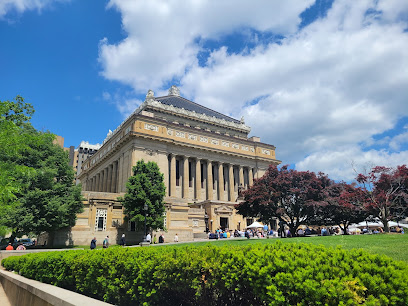
Mellon Square
Explore Mellon Square in Pittsburgh: a beautiful urban park blending nature and history in the heart of the city.
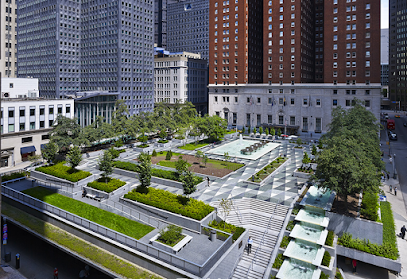
August Wilson African American Cultural Center
Explore the rich heritage of African Americans at the August Wilson African American Cultural Center, a vibrant cultural hub in Pittsburgh.
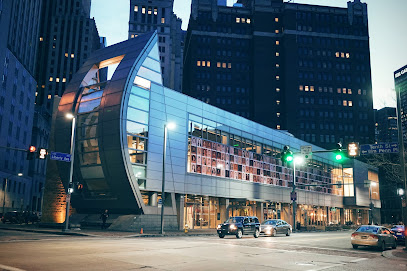
Bridges & Bourbon
Discover Bridges & Bourbon in Downtown Pittsburgh, where innovative cocktails meet exquisite American cuisine in a charming setting.
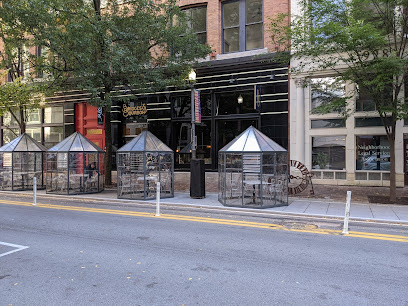
Unmissable attractions to see
PNC Park
Experience the excitement of Major League Baseball at PNC Park, an iconic stadium with breathtaking views of Pittsburgh's skyline and vibrant local culture.
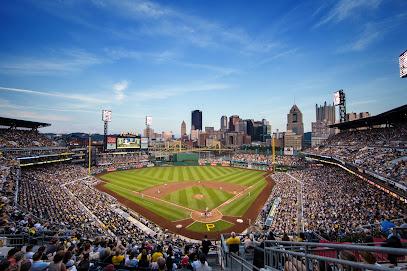
PPG Paints Arena
Discover the excitement of PPG Paints Arena, where thrilling sports events and unforgettable concerts come to life in the heart of Pittsburgh.
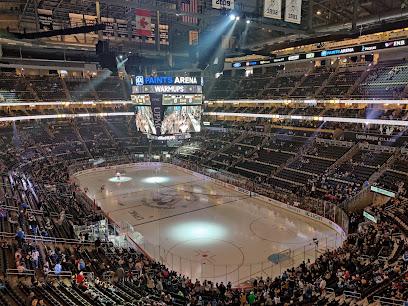
Pittsburgh Zoo & Aquarium
Explore the Pittsburgh Zoo & Aquarium, where wildlife and marine adventures come alive in a stunning natural setting.
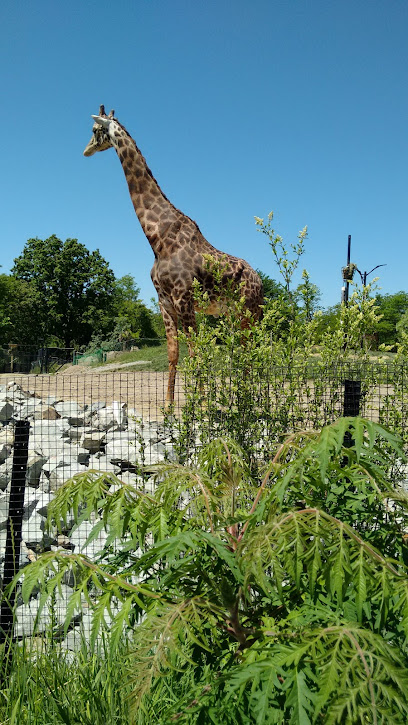
Kennywood
Experience the thrill and nostalgia of Kennywood, a historic amusement park in Pennsylvania, with rides and attractions for all ages.
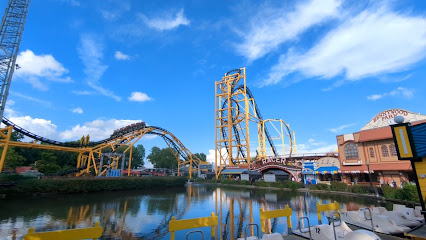
Acrisure Stadium
Discover the excitement at Acrisure Stadium, Pittsburgh's premier destination for sports and entertainment, home to unforgettable moments and thrilling events.
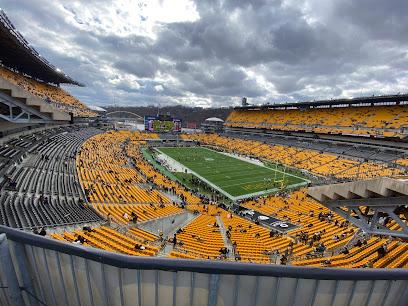
Rivers Casino
Experience the thrill of gaming, dining, and nightlife at Rivers Casino in Pittsburgh, where excitement meets elegance in every visit.
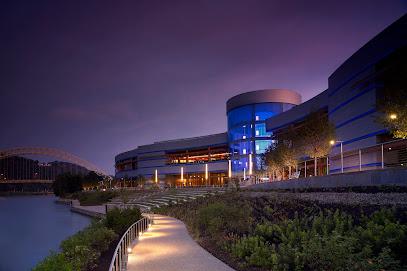
Phipps Conservatory and Botanical Gardens
Explore the lush beauty of Phipps Conservatory and Botanical Gardens, a stunning oasis of horticultural wonders in Pittsburgh, PA.
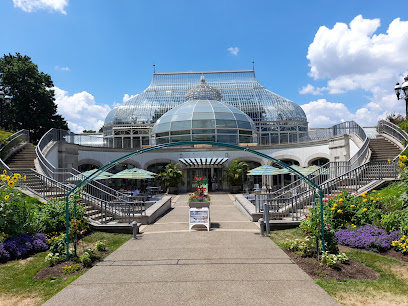
Point State Park
Experience the beauty and history of Point State Park, where the rivers meet in Pittsburgh's urban oasis, perfect for relaxation and exploration.
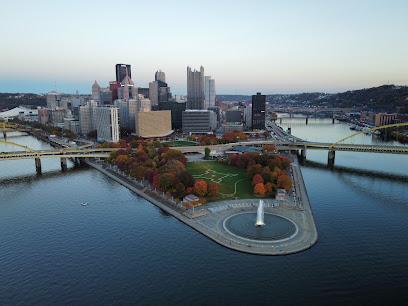
Point State Park
Explore the natural beauty and rich history of Point State Park, a tranquil oasis in the heart of Pittsburgh, perfect for outdoor activities and sightseeing.
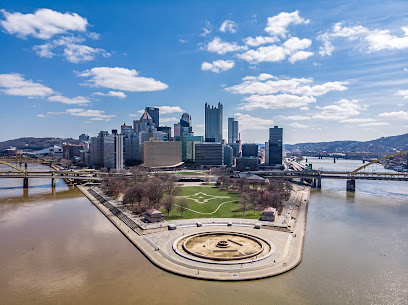
Schenley Park
Discover the beauty and charm of Schenley Park in Pittsburgh, a perfect blend of nature, recreation, and cultural landmarks in an urban setting.
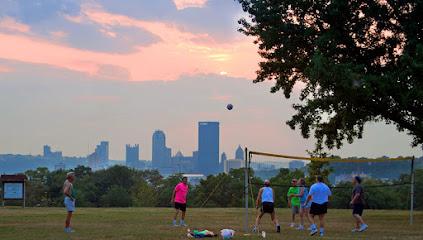
Schenley Park
Explore the enchanting landscapes and recreational wonders of Schenley Park, Pittsburgh's premier urban oasis for nature and adventure.
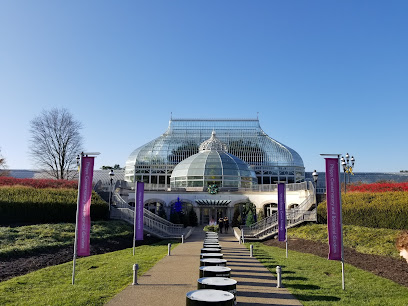
National Aviary
Experience the wonder of over 500 birds from around the world at the National Aviary in Pittsburgh, a premier attraction for nature enthusiasts and families.
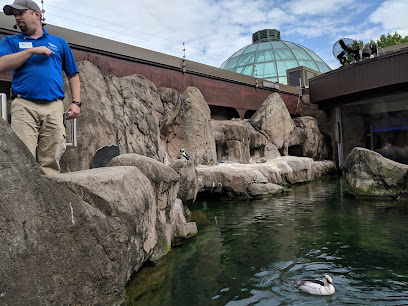
Benedum Center for the Performing Arts
Explore the Benedum Center in Pittsburgh, a premier performing arts venue offering diverse shows and spectacular architecture for an unforgettable cultural experience.
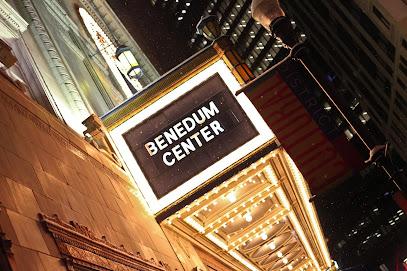
Grandview Overlook
Experience breathtaking views of Pittsburgh from Grandview Overlook, a must-see scenic spot that captures the city's stunning skyline and natural beauty.
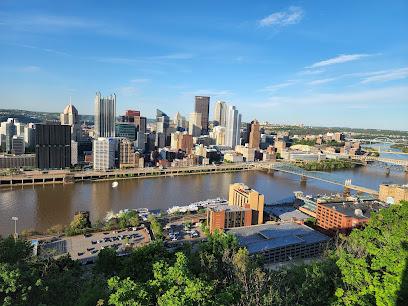
The Andy Warhol Museum
Discover the vibrant world of Andy Warhol at the largest museum dedicated to the pop art icon, showcasing his revolutionary influence on art and culture.
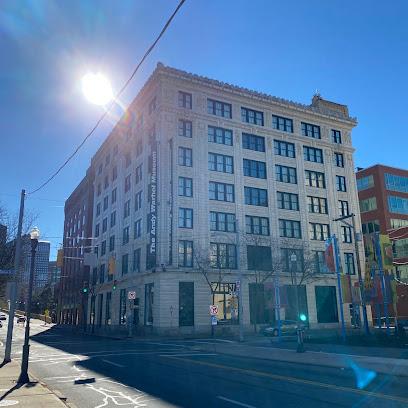
Essential places to dine
Burgatory
Experience gourmet burgers like never before at Burgatory in Pittsburgh's vibrant North Shore - where flavor meets creativity!
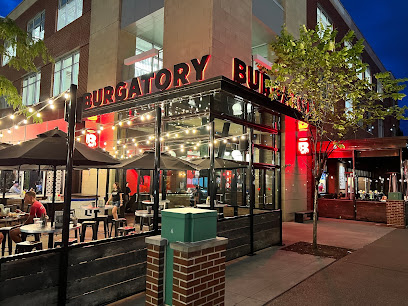
Sienna Mercato
Experience authentic Italian cuisine in Pittsburgh at Sienna Mercato – where delicious food meets vibrant atmosphere.
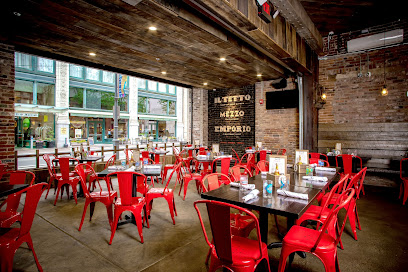
Monterey Bay Fish Grotto
Discover Pittsburgh’s premier destination for exquisite seafood and breathtaking city views at Monterey Bay Fish Grotto.
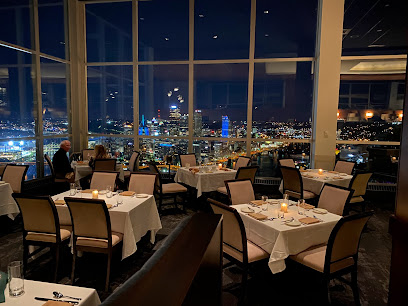
Grand Concourse
Experience culinary excellence at Grand Concourse in Pittsburgh; where exquisite flavors meet stunning architectural beauty.
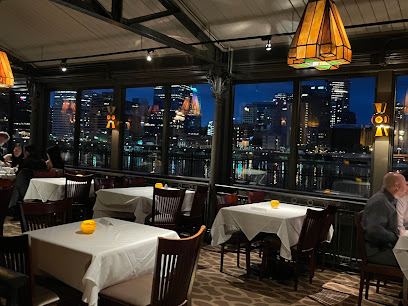
Federal Galley
Discover diverse flavors at Federal Galley – Pittsburgh's vibrant food hall offering everything from American classics to modern culinary innovations.
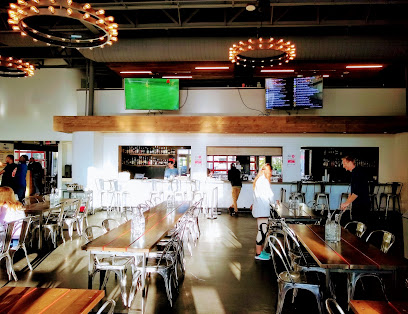
Meat & Potatoes
Experience the perfect blend of comfort food and innovative cocktails at Meat & Potatoes in Downtown Pittsburgh.
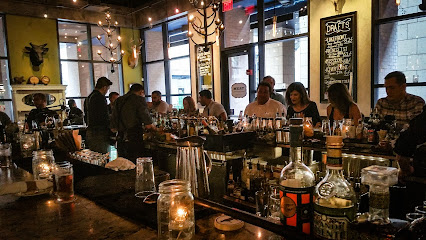
DiAnoia's Eatery
Experience authentic Italian flavors at DiAnoia's Eatery in Pittsburgh’s vibrant Strip District – where every dish tells a story.
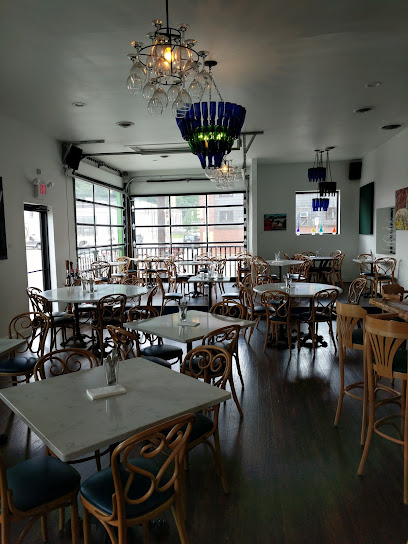
The Melting Pot
Experience the art of fondue at The Melting Pot in Pittsburgh - where fine dining meets unforgettable flavors.
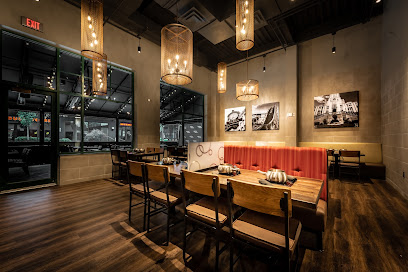
Eddie V's Prime Seafood
Experience culinary excellence at Eddie V's Prime Seafood in Downtown Pittsburgh—an exquisite blend of seafood and steak with live jazz ambiance.
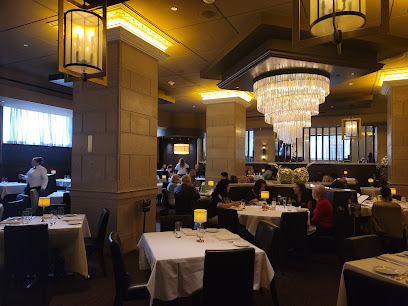
Buca di Beppo Italian Restaurant
Discover authentic Italian cuisine at Buca di Beppo in Pittsburgh's vibrant Station Square - perfect for families and food lovers alike!
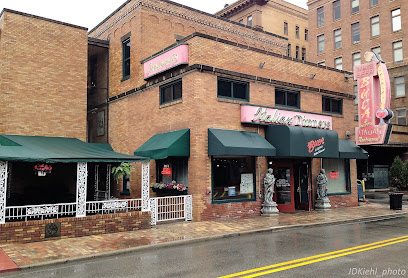
Big Jim's in the Run
Experience authentic Italian cuisine at Big Jim's in the Run - where flavor meets tradition in Pittsburgh.
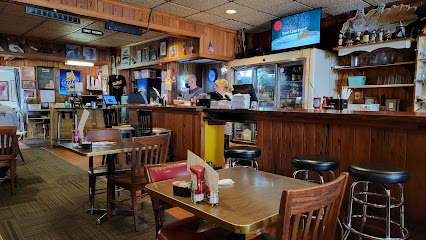
Altius
Experience upscale American cuisine with breathtaking views at Altius in Pittsburgh's Duquesne Heights.
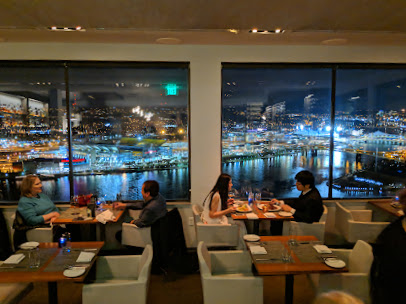
The Commoner
Discover The Commoner in Downtown Pittsburgh – where classic American cuisine meets modern gastropub flair.
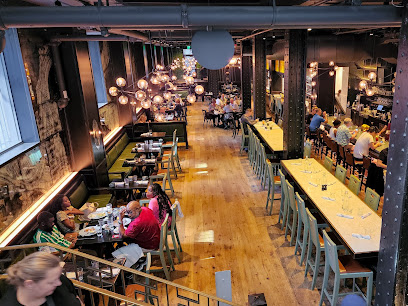
Kaya
Discover the vibrant flavors of Caribbean cuisine at Kaya, a top restaurant in Pittsburgh's lively Strip District.
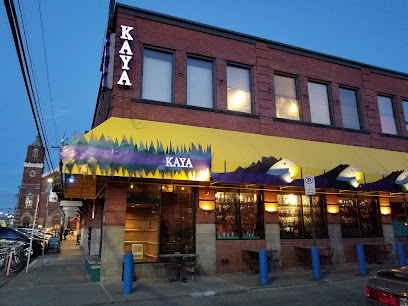
The Capital Grille
Experience fine dining at The Capital Grille in Pittsburgh with exquisite steaks, fresh seafood & an extensive wine selection.
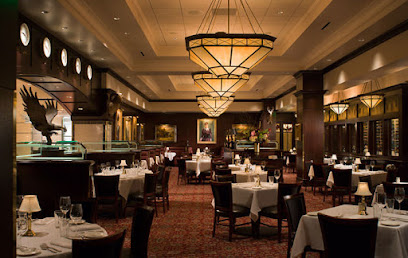
Markets, malls and hidden boutiques
Station Square
Experience the vibrant shopping and dining scene at Station Square, Pittsburgh's premier riverfront destination for entertainment and relaxation.
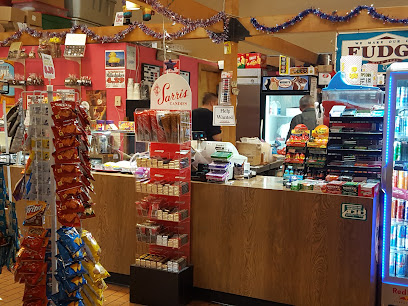
Pennsylvania Macaroni Co.
Experience authentic Italian flavors at Pennsylvania Macaroni Co., the premier grocery store in Pittsburgh's Strip District, offering gourmet ingredients and unique culinary delights.
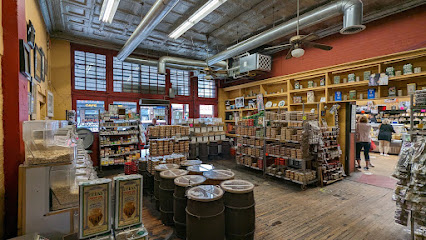
Grandpa Joe's Candy Shop
Discover a world of sweetness at Grandpa Joe's Candy Shop in Pittsburgh, where delicious chocolates, nostalgic candies, and fun toys await.
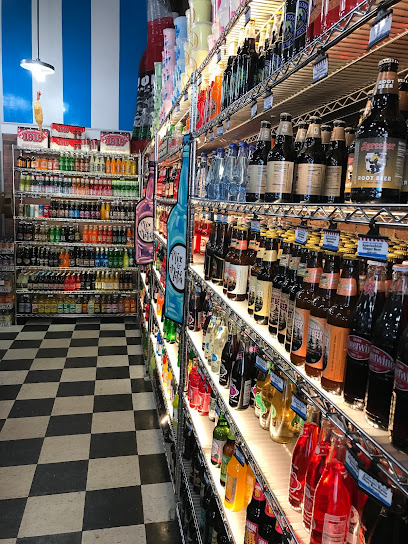
Wharton Square
Discover the vibrant shopping experience at Wharton Square in Pittsburgh, featuring diverse stores and delightful dining options for every traveler.
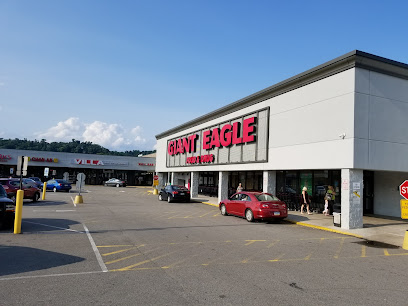
Wildcard
Explore Wildcard in Pittsburgh for unique gifts and local artisan creations that capture the spirit of the city.
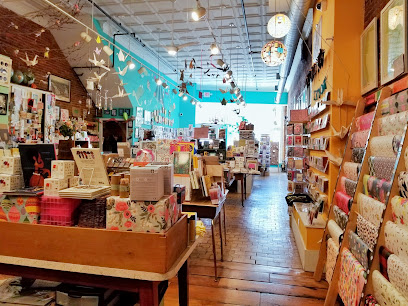
Kards Unlimited
Discover Kards Unlimited in Pittsburgh's Shadyside – a charming gift shop filled with unique cards, books, and thoughtful gifts for every occasion.
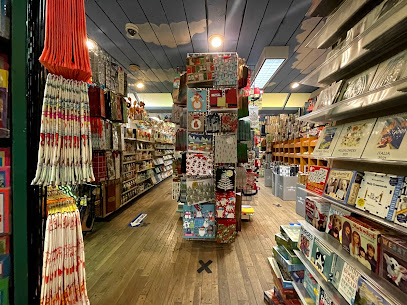
Steel City
Explore Steel City, your go-to destination for stylish men's and women's clothing in the heart of Pittsburgh.
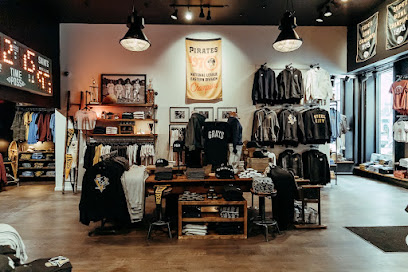
Miller's Crossing Fleatique
Explore Miller's Crossing Fleatique in Pittsburgh for unique antiques and thrift treasures, perfect for collectors and casual shoppers alike.
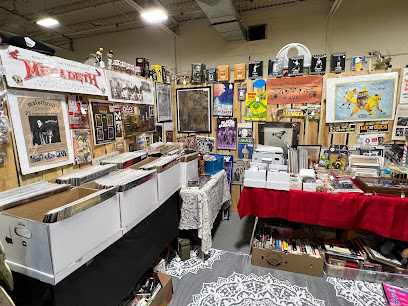
Hocus Pocus
Explore the mystical wonders of Hocus Pocus, a unique gift shop in Pittsburgh offering metaphysical supplies and magical treasures.
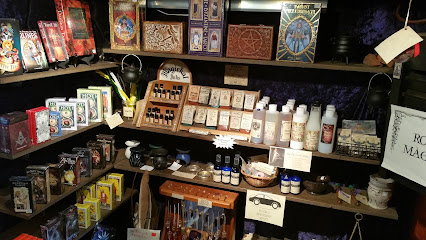
The Weeping Glass
Explore The Weeping Glass in Pittsburgh for unique gifts and antiques, showcasing local artistry and creative treasures in a whimsical atmosphere.
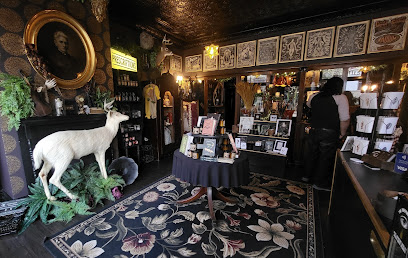
Zeds
Discover the charm of Pittsburgh at Zeds, a boutique offering unique finds and local treasures in the vibrant South Side Flats.
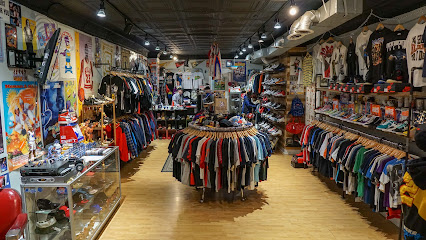
Clothes Minded
Explore sustainable fashion at Clothes Minded in Pittsburgh, where unique vintage and contemporary clothing awaits every fashion enthusiast.
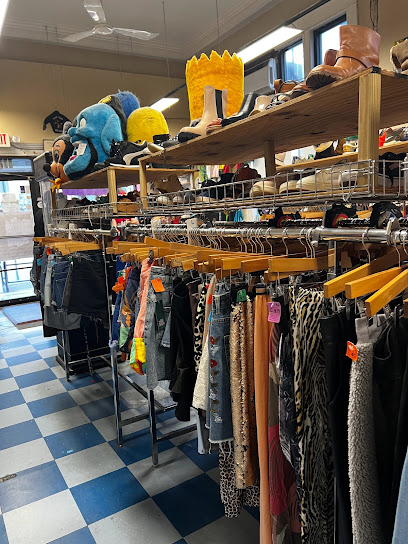
Culture Shop
Explore Culture Shop for unique jewelry and local artistry in Pittsburgh's vibrant South Side Flats, a perfect stop for tourists seeking memorable keepsakes.
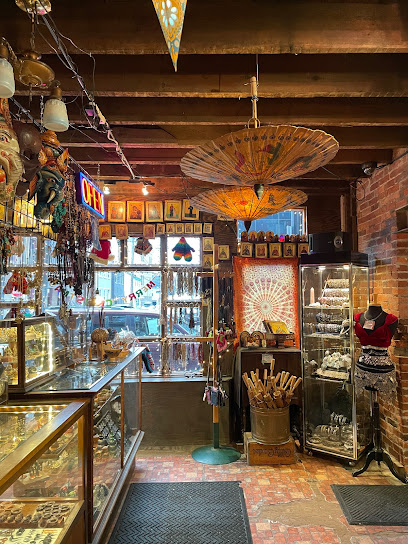
Dr. Tumblety's Time-Inspired Specialty Shop (Inspired by Spirits LLC)
Explore Dr. Tumblety's Specialty Shop in Pittsburgh: a unique destination for vintage finds, books, cosmetics, and more.
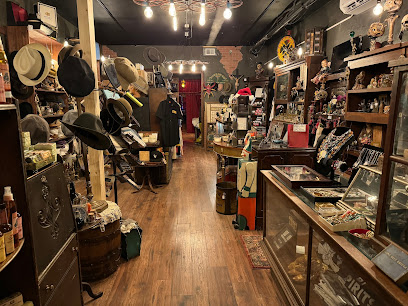
Three Rivers Vintage
Explore the charm of vintage fashion at Three Rivers Vintage in Pittsburgh's South Side Flats, a treasure trove of unique clothing and accessories.
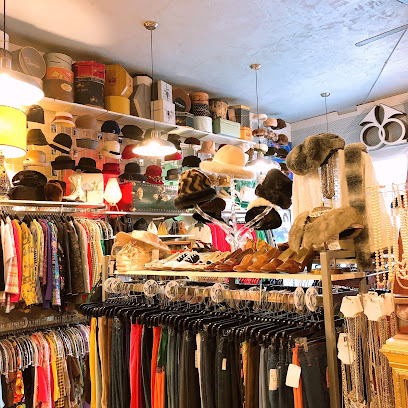
Essential bars & hidden hideouts
Howl at the Moon Pittsburgh
Howl at the Moon Pittsburgh: Where live music meets lively cocktails in the heart of the city, creating unforgettable nightlife experiences.
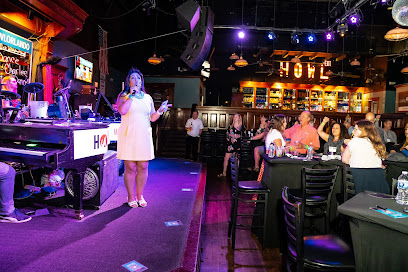
Jack's Bar
Experience Pittsburgh's vibrant nightlife at Jack's Bar, known for its affordable drinks and welcoming atmosphere in the heart of the South Side.
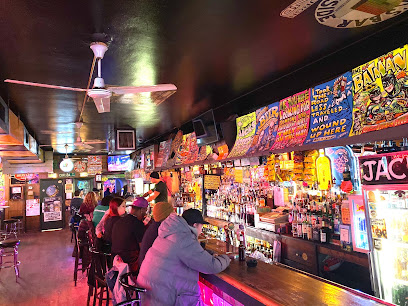
The Warren Bar & Burrow
Discover The Warren Bar & Burrow: Pittsburgh's premier cocktail bar, offering exquisite drinks, delicious sushi, and a lively atmosphere in downtown.
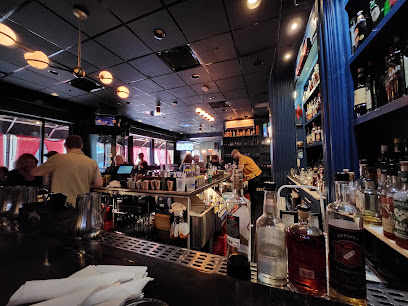
Hidden Harbor
Experience the unique cocktail culture of Pittsburgh at Hidden Harbor, a vibrant bar that delights with its eclectic drinks and cozy atmosphere.
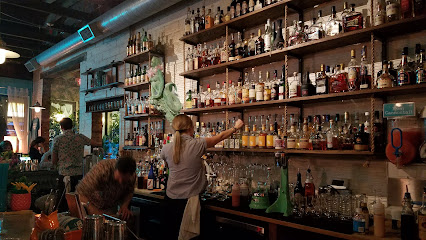
Bridges & Bourbon
Discover Pittsburgh's premier cocktail destination, Bridges & Bourbon, where craft cocktails and American cuisine unite in a chic atmosphere.
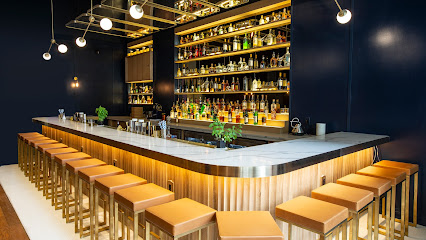
Lefty's
Discover the vibrant atmosphere and delightful drinks at Lefty's, your go-to bar in Pittsburgh's Strip District.
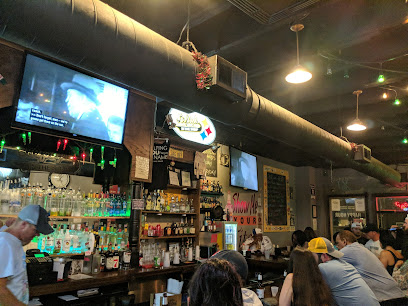
Jekyl & Hyde - Pittsburgh's Halloween Bar
Discover Jekyl & Hyde - Pittsburgh's Halloween Bar, where spooky meets fun in a karaoke-filled atmosphere perfect for all ages.
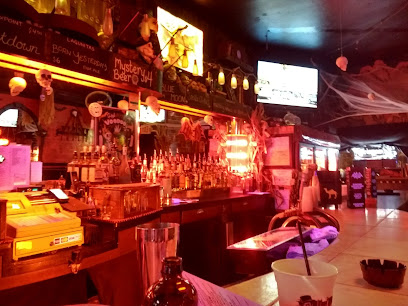
The Summit
Discover The Summit, a stylish cocktail bar in Mount Washington, offering stunning skyline views, crafted cocktails, and vibrant live music.
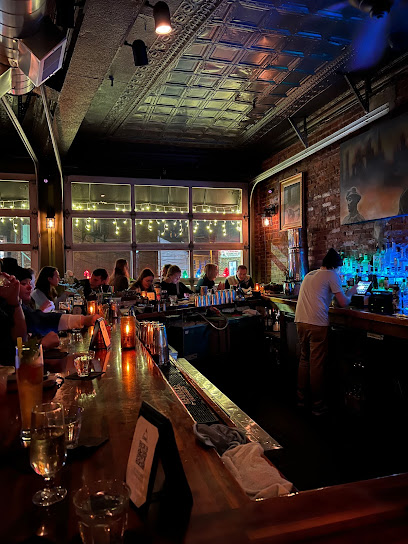
Mixtape
Discover the vibrant fusion of cocktails and coffee at Mixtape, a unique lounge in Pittsburgh perfect for every occasion.
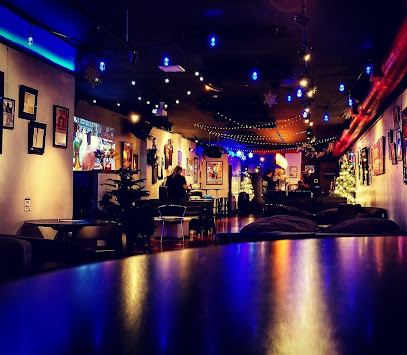
Acacia
Discover the vibrant cocktail culture of Pittsburgh at Acacia, where innovative drinks and a lively atmosphere await.
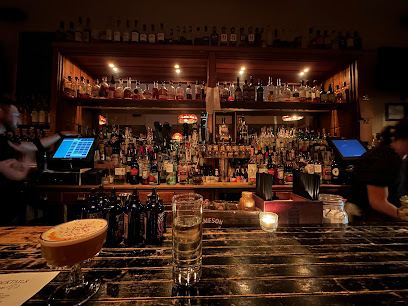
Gooski's
Discover the heart of Pittsburgh's nightlife at Gooski's, a vibrant bar in Polish Hill with affordable drinks and a lively atmosphere.

Allegheny Wine Mixer
Experience a vibrant wine culture at Allegheny Wine Mixer, where local and international wines meet a cozy atmosphere in Pittsburgh's Lawrenceville.
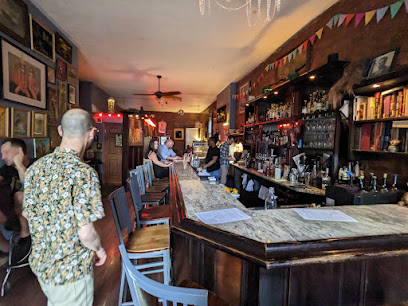
Bar 11
Discover Bar 11 in Pittsburgh's South Side for craft cocktails, vibrant nightlife, and a welcoming atmosphere that guarantees a night to remember.
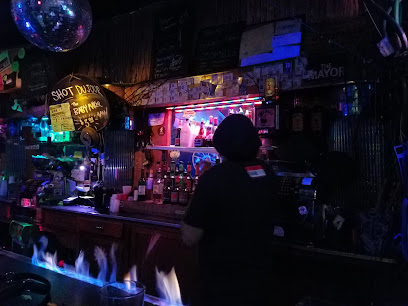
Over Eden
Discover Over Eden, Pittsburgh's premier American lounge, offering a unique blend of cuisine and atmosphere in the heart of Lawrenceville.
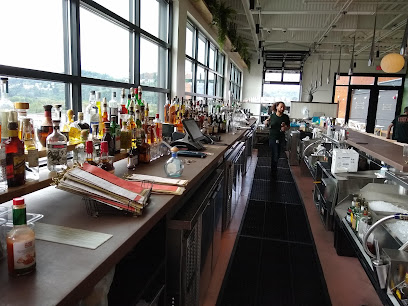
Local Phrases
-
- HelloYinz
[yinz] - GoodbyeSee ya
[see ya] - YesYea
[yeah] - NoNah
[na] - Please/You're welcomePlease/N'at
[please/nat] - Thank youThanks
[thanks] - Excuse me/SorryExcuse me/Sorry
[excuse me/sorry] - How are you?How yinz doin'?
[how yinz doin] - Fine. And you?Ahr, an' you?
[are, an you] - Do you speak English?Yinz speak English?
[yinz speak english] - I don't understandI ain't gettin' it
[I aint gettin it]
- HelloYinz
-
- I'd like to see the menu, pleaseLet me see the menu n'at, please
[let me see the menu nat please] - I don't eat meatI don't eat meat
[I dont eat meat] - Cheers!Cheers!
[cheers] - I would like to pay, pleaseI'd like to pay, please
[I'd like to pay please]
- I'd like to see the menu, pleaseLet me see the menu n'at, please
-
- Help!Help!
[help] - Go away!Git aht!
[git out] - Call the Police!Call the cops!
[call the cops] - Call a doctor!Call a doc!
[call a doc] - I'm lostI'm lost
[I'm lost] - I'm illI'm sick
[I'm sick]
- Help!Help!
-
- I'd like to buy...I'm lookin' to buy...
[I'm lookin to buy] - I'm just lookingI'm just lookin'
[I'm just lookin] - How much is it?How much 'at cost?
[how much at cost] - That's too expensiveThat's too much
[that's too much] - Can you lower the price?Can yinz do any better on 'at price?
[can yinz do any better on at price]
- I'd like to buy...I'm lookin' to buy...
-
- What time is it?What time is 'at?
[what time is at] - It's one o'clockIt's one
[it's one] - Half past (10)Half ten
[half ten] - MorningMornin'
[mornin] - AfternoonAfternoon
[afternoon] - EveningEvenin'
[evenin] - YesterdayYesterday
[yesterday] - TodayToday
[today] - TomorrowTomorra
[tomorra] - 1One
[one] - 2Two
[two] - 3Three
[three] - 4Four
[four] - 5Five
[five] - 6Six
[six] - 7Seven
[seven] - 8Eight
[eight] - 9Nine
[nine] - 10Ten
[ten]
- What time is it?What time is 'at?
-
- Where's a/the...?Where's the...?
[where's the] - What's the address?What's the address?
[what's the address] - Can you show me (on the map)?Can yinz show me (on the map)?
[can yinz show me (on the map)] - When's the next (bus)?When's the next (bus)?
[when's the next bus] - A ticket (to ....)A ticket (to ....)
[a ticket to]
- Where's a/the...?Where's the...?
History of Pittsburgh
-
Long before European settlers arrived, the Pittsburgh area was inhabited by various Native American tribes, including the Shawnee, Seneca, and Delaware. The confluence of the Allegheny and Monongahela Rivers forming the Ohio River made it a crucial area for trade and travel. The strategic importance of this location would later attract European interest.
-
In 1754, the French constructed Fort Duquesne at the confluence of the rivers to control the Ohio Valley. This fort became a focal point during the French and Indian War, a part of the global conflict known as the Seven Years' War. After a series of battles, the British captured the fort in 1758 and built Fort Pitt, named after British statesman William Pitt the Elder, establishing British dominance in the region.
-
Following the British victory, the area around Fort Pitt began to develop into a settlement. In 1764, the town of Pittsburgh was officially laid out. The early economy was driven by trade, with furs and other goods being shipped down the Ohio River.
-
Pittsburgh's strategic location near coal reserves and waterways made it an ideal hub for industry. In the 19th century, the city became the epicenter of America's steel industry, earning it the nickname 'Steel City.' Industrialists like Andrew Carnegie revolutionized steel production, and Pittsburgh produced a significant portion of the nation's steel by the early 20th century.
-
On April 10, 1845, a devastating fire swept through Pittsburgh, destroying a third of the city and leaving thousands homeless. The fire started in a cabinet maker's shop and was exacerbated by strong winds and wooden buildings. This disaster led to the rebuilding of the city with more fire-resistant materials and improved infrastructure.
-
Pittsburgh was also a crucial battleground for the labor movement. In the late 19th and early 20th centuries, workers in the steel mills and other industries faced harsh conditions. The Homestead Strike of 1892, one of the most significant labor disputes in American history, took place just outside Pittsburgh and highlighted the struggles between labor and management.
-
By the mid-20th century, the steel industry in Pittsburgh began to decline due to competition and changing economic conditions. The city faced economic hardship, but it also began to diversify its economy. Today, Pittsburgh is known for its healthcare, education, and technology sectors, with institutions like the University of Pittsburgh Medical Center and Carnegie Mellon University playing significant roles.
-
In recent decades, Pittsburgh has undergone a cultural renaissance. The city boasts a vibrant arts scene, with numerous museums, theaters, and music venues. The Andy Warhol Museum, dedicated to the Pittsburgh-born pop art icon, and the Carnegie Museum of Art are just a few examples of the city's rich cultural offerings.
-
Pittsburgh's identity is also closely tied to its sports teams. The Pittsburgh Steelers, Pirates, and Penguins have passionate fan bases and have brought numerous championships to the city. The 'Terrible Towel,' a symbol of the Steelers, is recognized worldwide and represents the city's enduring spirit and resilience.
Pittsburgh Essentials
-
Pittsburgh is served by Pittsburgh International Airport (PIT), located about 20 miles west of downtown. Direct flights are available from many major U.S. cities. Additionally, Amtrak offers train services to Pittsburgh via the Pennsylvanian route, connecting New York City and Chicago. Greyhound and Megabus provide extensive bus services to and from Pittsburgh. For those driving, Pittsburgh is accessible via major highways such as I-76, I-79, and I-376.
-
Pittsburgh's public transportation system is managed by the Port Authority of Allegheny County, which operates buses, the 'T' light rail system, and the Monongahela and Duquesne Inclines. Ride-sharing services like Uber and Lyft are widely available. Biking is also popular, with numerous bike lanes and rental services like Healthy Ride. Car rentals are available at the airport and various locations around the city.
-
The official currency is the U.S. Dollar (USD). Credit and debit cards are commonly accepted in most establishments. ATMs are widely available throughout the city. Contactless payments and mobile wallets like Apple Pay and Google Wallet are also becoming more common.
-
Pittsburgh is generally considered a safe city for tourists. However, exercise caution in areas such as the North Side and the Hill District, particularly after dark. Always be aware of your surroundings, keep your belongings secure, and avoid isolated areas. Emergency services are accessible by dialing 911.
-
In case of an emergency, dial 911 for police, fire, or medical assistance. Pittsburgh has several top-rated hospitals, including UPMC Presbyterian and Allegheny General Hospital. Pharmacies like CVS and Walgreens are available for non-emergency medical needs. It is advisable to have travel insurance that covers medical emergencies.
-
Fashion: Do dress comfortably and appropriately for the weather; layers are recommended due to variable weather conditions. Avoid overly casual attire in upscale restaurants. Religion: Do respect the diverse religious communities. Many churches and synagogues welcome visitors. Public Transport: Do have exact change or a pre-loaded ConnectCard for bus and T rides. Don’t eat or drink on public transport. Greetings: Do greet people with a friendly 'hello' or handshake. Pittsburghers are generally friendly and approachable. Eating & Drinking: Do try local specialties like Primanti Brothers sandwiches and pierogies. Don’t be surprised if you’re offered fries on your sandwich or salad; it's a local tradition.
-
To experience Pittsburgh like a local, explore the Strip District for its fresh produce markets, unique shops, and eateries. Attend a Pittsburgh Pirates game at PNC Park or a Steelers game at Heinz Field. Visit the Carnegie museums for a dose of culture and history. Don’t miss the view from Mount Washington, accessible by the historic inclines. Participating in a local festival or event, such as the Three Rivers Arts Festival, can also provide an authentic experience.
Trending Landmark in Pittsburgh
-
Point State Park
-
Schenley Park
-
Market Square
-
National Aviary
-
The Andy Warhol Museum
-
Randyland
-
Senator John Heinz History Center
-
Point State Park Fountain
-
The Frick Pittsburgh
-
Point of View
-
Fort Pitt Museum
-
Soldiers & Sailors Memorial Hall & Museum
-
Mellon Square
-
August Wilson African American Cultural Center
-
Bridges & Bourbon
Nearby Cities to Pittsburgh
-
Things To Do in Weirton
-
Things To Do in Wheeling
-
Things To Do in Morgantown
-
Things To Do in Youngstown
-
Things To Do in Fairmont
-
Things To Do in Canton
-
Things To Do in Clarksburg
-
Things To Do in Akron
-
Things To Do in Marietta
-
Things To Do in Wooster
-
Things To Do in Elkins
-
Things To Do in Zanesville
-
Things To Do in Cleveland
-
Things To Do in Parkersburg
-
Things To Do in Erie

















